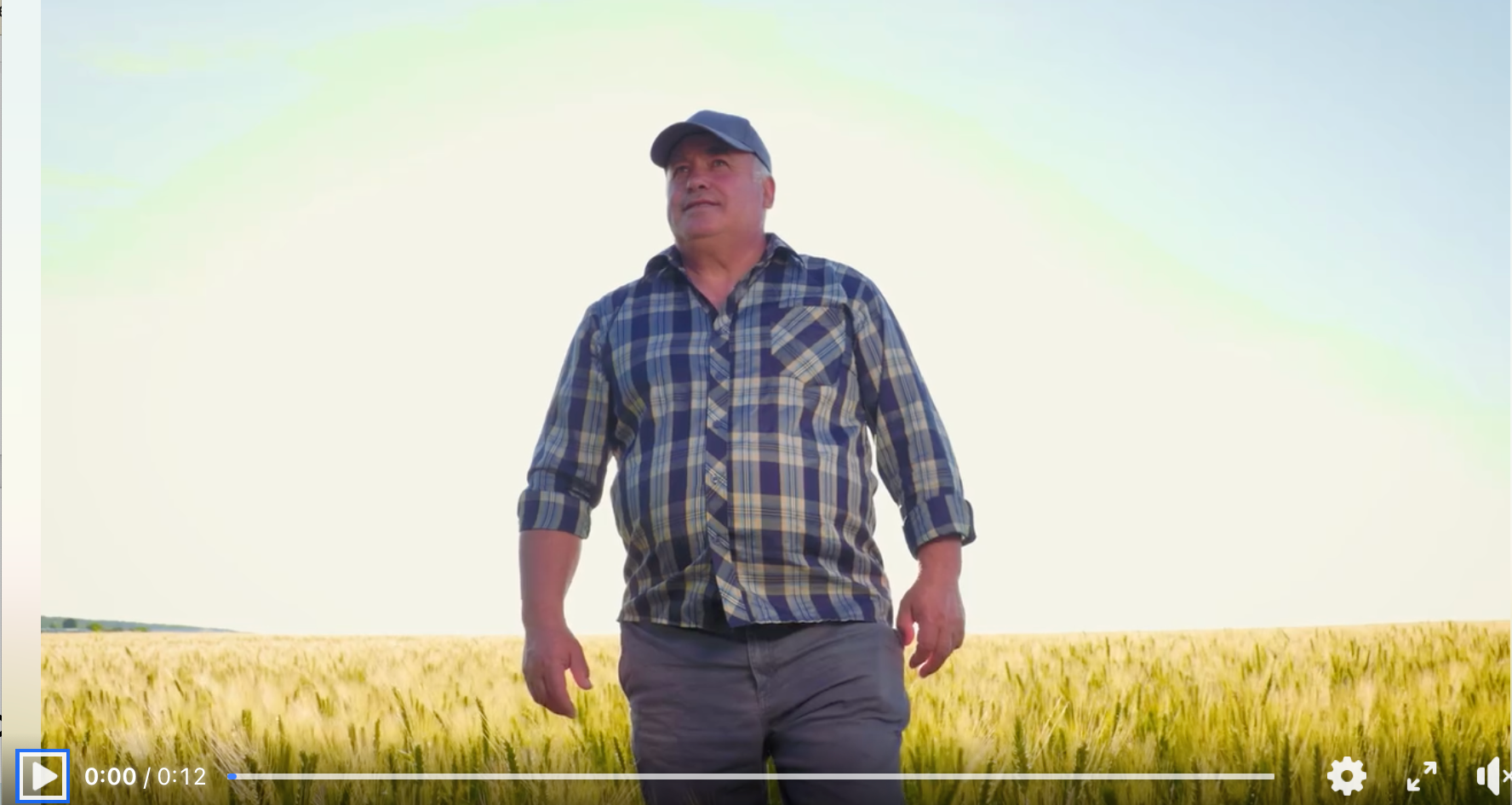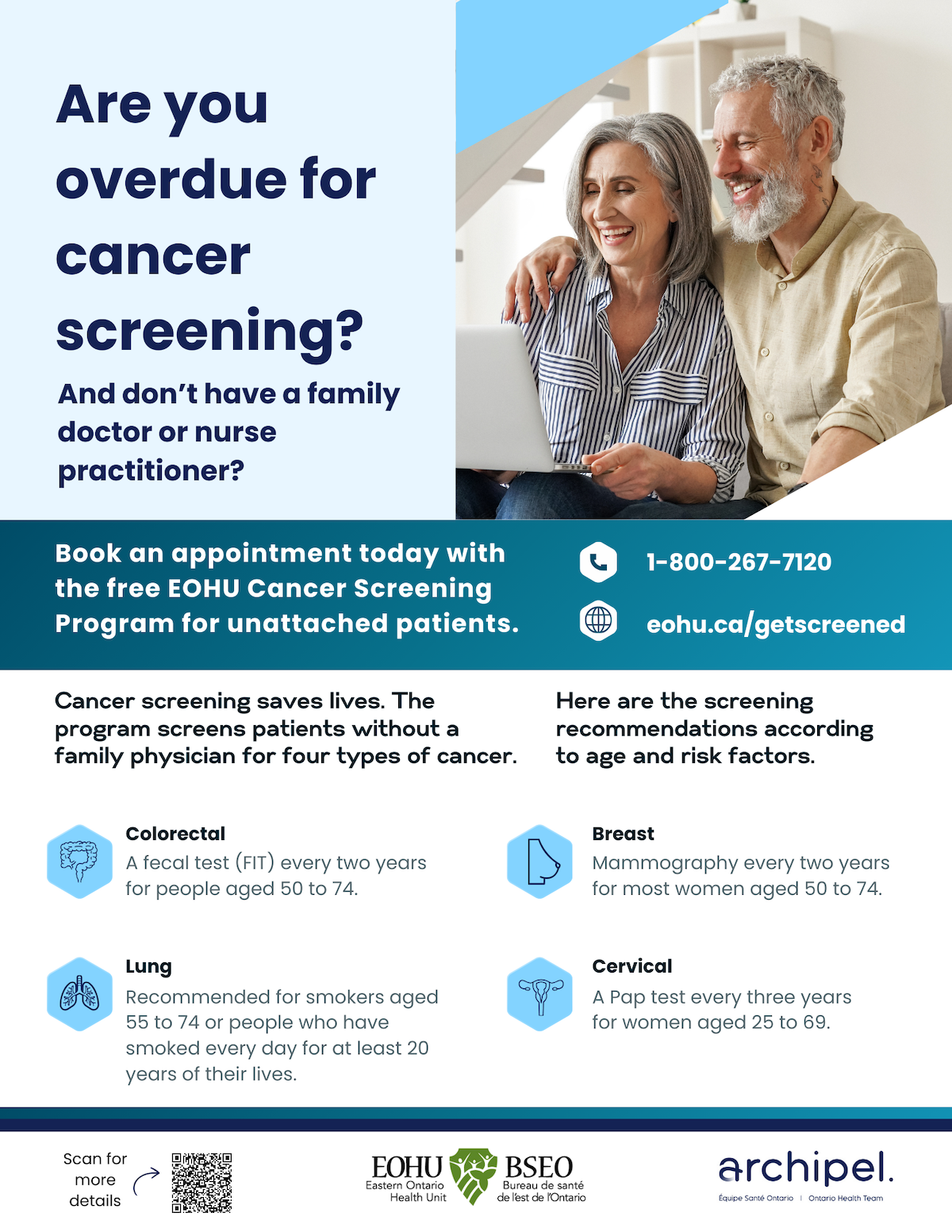The Eastern Ontario Health Unit (EOHU) is responsible for the delivery of local public health programs and services, carried out in collaboration with other organizations in the health system and in partnership with municipal governments and community partners.
The EOHU serves a population of approximately 200,000 people in the United Counties of Stormont, Dundas & Glengarry, Prescott-Russell and the City of Cornwall, covering a total territory of over 5,000 square kilometers. Their main offices are located in Cornwall and Casselman, with four additional satellite offices in Winchester, Alexandria, Hawkesbury and Rockland.
For more information, please visit the EOHU website.








